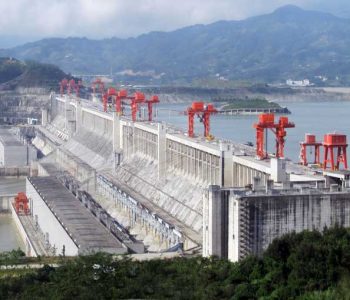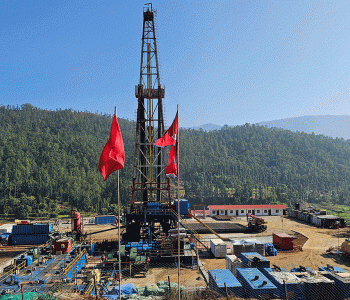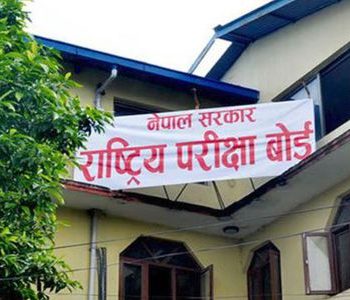Nepal to send 25,000 workers annually to Spain under Standard Work Visa program

Warehouse workers in Spain
KATHMANDU: In a significant move to diversify labor migration destinations, the Government of Nepal is set to send 25,000 workers annually to Spain under a Standard Work Visa program. The initiative is modeled after successful labor migration frameworks like the Korean Employment Permit System (EPS) and Israel’s work agreement, aimed at providing Nepali migrant workers with improved labor rights and opportunities.
High-ranking officials from the Ministry of Labour, Employment, and Social Security (MoLESS) revealed that two rounds of discussions with Spain have already been completed, with a final meeting remaining to finalize the procedural details.
“The final discussions will be held once Nepal’s Ambassador to Spain arrives in Madrid. Following that, we expect to sign the Government-to-Government (G2G) agreement soon,” a senior MoLESS official stated.
Improved Conditions for Nepali Migrant Workers
The program is designed to address long-standing issues faced by Nepali migrant workers, especially in the Middle East, where many have endured poor labor conditions, wage discrimination, and violations of basic human rights.
“Our workers in the Middle East face significant challenges regarding labor rights and human rights. This new agreement with Spain will ensure better working conditions and safeguard their dignity,” the official explained.
Spain offers legal safeguards, higher wages, and access to social security benefits, making it an attractive destination for Nepali workers compared to traditional labor markets like Qatar, Saudi Arabia, and the UAE.
Standard Work Visa with Path to EU Blue Card
Under the agreement, workers will receive a Standard Work Visa, granting them the right to work legally in Spain. Additionally, after one year of employment, they will have the opportunity to apply for an EU Blue Card, which allows skilled workers to live and work in any European Union country.
The EU Blue Card is a pathway to numerous benefits, including family reunification, better career prospects, and mobility within the EU. This feature is expected to attract skilled and semi-skilled Nepali workers, enhancing the quality of Nepal’s labor export.
Nepal’s economy heavily relies on remittances, which contribute nearly 25% of its GDP. Traditionally, countries in the Middle East, such as the UAE, Saudi Arabia, and Kuwait, along with Malaysia, have been the primary destinations for Nepali migrant workers. However, these markets often offer lower wages and limited labor protections.
Spain’s inclusion as a labor migration destination is expected to boost remittance inflows significantly, thanks to higher wages and better job security. This shift will not only benefit workers but also strengthen Nepal’s economy.
Ensuring Ethical Recruitment and Worker Safety
To ensure the success of the program, MoLESS is working on implementing stringent monitoring and ethical recruitment practices. Key measures include:
-Fair recruitment processes to prevent exploitation by recruitment agencies.
-Collaboration with Spanish authorities to address grievances and ensure compliance with labor laws.
-Regular inspections to monitor working conditions and protect worker rights.
“Worker safety and dignity are our top priorities. This agreement will help us establish a new benchmark for ethical labor migration,” a MoLESS spokesperson added.
For decades, Nepal has sent the majority of its migrant workers to Gulf countries under the Kafala system, a sponsorship-based employment framework notorious for its exploitative practices. Workers in these countries have frequently reported issues such as withheld wages, long working hours, and lack of access to legal remedies.
The Spanish labor agreement aims to reduce Nepal’s dependency on these markets by opening doors to Europe, where labor laws are more worker-centric and equitable.
Spain as a Destination for Skilled Workers
Spain’s demand for skilled and semi-skilled workers aligns with Nepal’s objective to upskill its labor force. The government intends to prioritize training programs to equip workers with the necessary skills to meet Spain’s labor market requirements.
This program will not only provide lucrative opportunities for Nepali workers but also help Nepal establish itself as a reliable supplier of skilled labor in the global workforce.
Next Steps in the Agreement
Officials are optimistic about finalizing the agreement soon after the Ambassador’s arrival in Spain. The G2G model will eliminate middlemen, ensuring a transparent and cost-effective process for workers.
The program’s implementation is expected to begin shortly after the agreement is signed, marking a new chapter in Nepal’s labor migration policy and strengthening ties between Nepal and Spain.














Facebook Comment